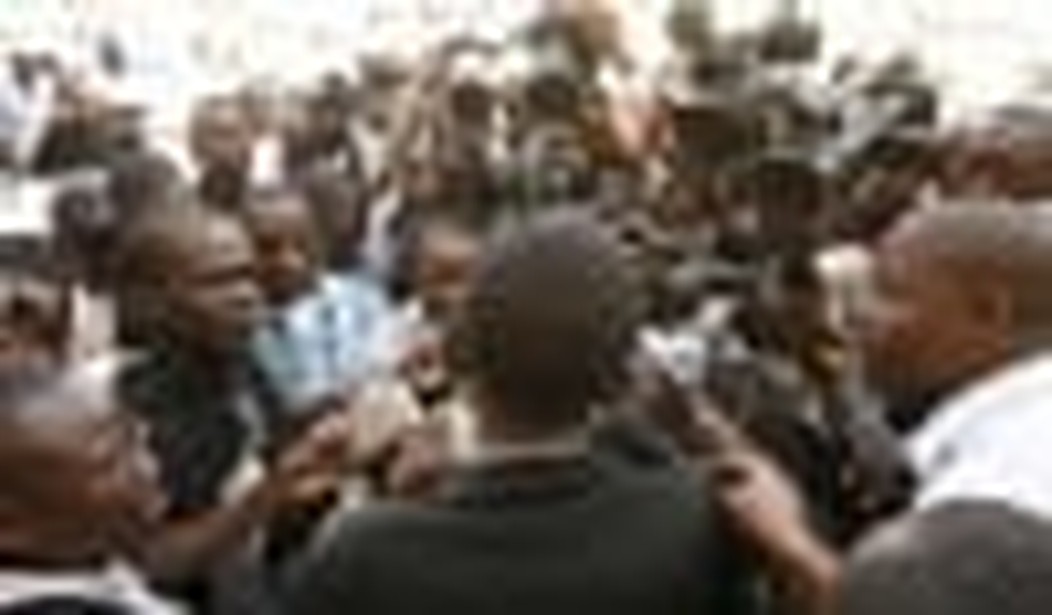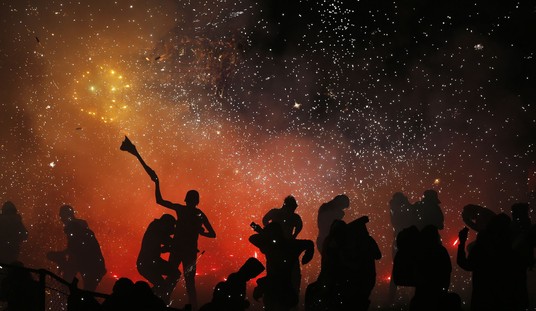Zimbabwe is on edge. It is on edge because more than a week after a largely peaceful election, presidential results have not yet been released. Ironically, the longer the results are withheld, the clearer it is that not only are unscrupulous things happening behind the scenes, but that the results contain an embarrassing and unexpected outcome. So the nation waits and with each passing hour we teeter on the brink of utter chaos.
Zimbabweans are on edge because maybe, just maybe, the crisis of sorts that has riddled the nation could very well be over. The hunger, poverty, displacement, and disenfranchisement could all end. And that hope, that glimmer of an end, is all the more reason to be on edge because the status quo is beyond untenable.
How did we get here? President Robert Mugabe and ZANU-PF miscalculated and they miscalculated badly.
First, they misjudged when they assumed that the legislative concessions they granted in the Mbeki mediated pre-election talks would not come back to haunt them. Prior to the elections, Patrick Chinamasa, the Justice Minister, agreed to curtail the despotic extremes of three pieces of legislation: the Access to Information and Protection of Privacy Act (AIPPA), the Public Order and Security Act (POSA), and the Electoral Act (EA).
AIPPA was amended to make it easier for foreign journalists and Zimbabweans working for foreign entities to operate. The change to POSA — that political parties only had to notify the police as opposed to request their sanction before the held rallies — proved to be pivotal in the MDC’s ability to broadcast their message.
The EA changed in two important ways that proved to be ZANU-PF’s unraveling. First, the act created an autonomous electoral commission — the Zimbabwe Electoral Commission (ZEC). Not only was ZEC created, but many brave Zimbabweans who served the commission disposed of their mission impartially and stood up to ZANU-PF in keeping with their constitutional mandate, something for which they are now being persecuted. Further, changes to the EA compelled that results from each polling station be posted publicly as soon as they had been counted.
Second, ZANU-PF grossly underestimated the opposition’s ability to get organized and offer stiff competition. The MDC mobilized a campaign that featured candidates in most of the contested council, parliamentary, and senate seats nationwide and, of course, Tsvangirai — the bane of Mugabe’s despotism. They were also able to deploy a massive amount of polling officers to over 9,000 polling stations, They not only observed the process, but vitally recorded and archived the results before relaying them back to party’s central command. This made cheating very difficult and is the reason the MDC beat ZEC to the ball when it came time to announce results.
But third and most importantly, ZANU-PF underestimated the people’s discontent with the party. They expected the Zimbabwean people to carry their load one too many times. They relied on their decade-old denigration of the opposition as stooges of the west just a little too much. And all of a sudden, the very people whose subjugation ZANU had come to expect turned their backs on the party, leaving them exposed. ZANU has no one else to blame for this but themselves. The MDC has persistently increased their electoral winnings each time they have contested an election. ZANU’s strategists should have paid this widely apparent trend more attention, but they didn’t.
So here we are.
Now, the elections held on the 29th of March will long be remembered as the most definitive signal yet that the nation is ready for an end to Mugabe’s 28 year reign over the southern-African country. By their vote, Zimbabweans directly applied themselves to a politics of change. Zimbabweans want a change in leadership and an end to the poverty and scarcity that have ravaged their lives over the last decade. This much has been chronicled in the mainstream news, on blogs, and in other citizen-based outlets.
Yet Zimbabweans did more.
While journalists, bloggers, and activists chronicled the dilemma of a nation that voted for the politics of change, the more significant undercurrent — that of Zimbabweans voting for a change in Zimbabwean politics — seems to have been lost in the furor. There is a difference between a politics of change and a change of politics. In the former, dissatisfied voters elect candidates they hope will transform prevailing circumstances. These voters look to new politicians and hope politics will change their situation. The meteoric rise of Barack Obama, the once unheralded rookie senator from Illinois in the USA, is a case in point of this phenomenon.
A change of politics on the other hand, is a wholesome transformation of the political machinery itself. The very rules and expectations of the game are fundamentally changed in this scenario. Politics is revised to match the situation in a new way. Zimbabweans did both; they not only voted for a change in the prevailing politics by electing the MDC to power, they most importantly passed a referendum to change the country’s politics.
The message was sent loud and clear that no longer are Zimbabweans going to blindly follow the politics of personality cults. Unlike what the pundits had pontificated, Zimbabweans displayed their political autonomy by electing officials they thought best served citizen interests. This is not a mundane occurrence. It is, in fact, the core of the change in politics that happened in Zimbabwe. People showed that they are no longer going to tolerate politicians that only show up in their constituencies during the election season while confining themselves to the hallways of power in Harare the rest of the time. They picked people whose rhetoric matched their reality and with that ushered in the dawn of a new Zimbabwe.
Zimbabwean politicians and purveyors of western democracy be warned: in this great nation your most innovative ideas will come to naught if they do not address the mundane reality confronting Zimbabweans. Ask ZANU-PF. They are still reeling in shock. While you’re at it, warn the MDC that they are in the twilight now and will meet the same fate if they fall asleep on the job.
Zimpundit is a passionate Zimbabwean oft distraught at the predicament Zimbabwe is in. Zimpundit’s writings on Zimbabwean politics have appeared at zimpundit.blogspot.com, enoughzimbabwe.org, and www.globalvoicesonline.org.









Join the conversation as a VIP Member